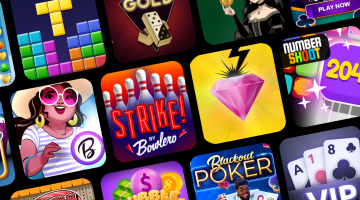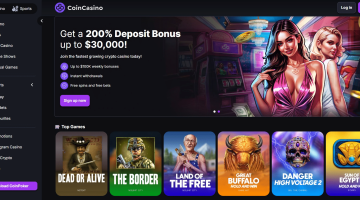
Blockchain Verification in Provably Fair Gaming: Trust, Transformed
Let’s be honest for a second. Trusting an online casino has always felt a bit… naive. You click “spin,” and you just have to hope that the digital roulette wheel isn’t rigged against you. It’s a leap of faith. But what if you didn’t need faith? What if you could check the results yourself, mathematically, and prove everything was on the level?
Well, that’s the promise of provably fair gaming. And now, with blockchain technology stepping in, that promise is becoming an ironclad guarantee. It’s not just about fair play anymore; it’s about verifiable, unchangeable, and transparent fairness.
What is Provably Fair Gaming, Really?
At its heart, provably fair is a cryptographic system. It lets you, the player, verify that the outcome of each game—every card dealt, every dice roll—was random and wasn’t manipulated after you placed your bet.
Think of it like a sealed envelope. Before you even play, the casino creates a “secret” (a cryptographic seed) that determines the game’s outcome and locks it away. You also provide your own input. The result is generated from these combined seeds. After the game, the casino reveals its secret key, and you can use it to run a quick check. If the numbers match, you know the game was fair from the start. If they don’t, well, you’ve caught them red-handed.
Where Traditional Provably Fair Systems Fall Short
The concept is brilliant, sure. But the early implementations had a few, let’s call them, trust gaps.
For one, you still had to trust that the casino wasn’t keeping a secret copy of that seed and reusing it. Or that their server logs weren’t being tampered with after the fact. It was a system that was provably fair in theory, but its integrity depended on the very entity you were trying to verify. A bit of a paradox, you know?
That lingering doubt is the very problem blockchain verification was born to solve.
Blockchain: The Ultimate Trust Machine
So, how does blockchain fix this? Imagine a public ledger—one that’s distributed across thousands of computers worldwide. Once a piece of information is written to this ledger, it’s permanent. It can’t be altered, edited, or deleted. It’s set in digital stone.
This is the game-changer for provably fair gaming. Instead of just storing that all-important seed on their own server, the casino can now commit it to the blockchain before the game even begins.
The Nuts and Bolts: How Blockchain Verification Works
Here’s a simplified breakdown of the process:
- Step 1: The Commitment. Before you play a round, the gaming platform generates a hash (a unique digital fingerprint) of its secret seed. This hash is then broadcast and recorded on the blockchain. This is their unchangeable promise.
- Step 2: Your Input. You place your bet. Your client (your browser or app) also generates a seed, which is sent to the platform. This ensures the player has a role in the randomness, too.
- Step 3: The Reveal. After the game round is over, the casino reveals its original secret seed.
- Step 4: The Verification. You, or any third-party tool, can now take that revealed seed, hash it, and check it against the hash that was stored on the blockchain before the game. If they match perfectly, you have cryptographic proof that the game was determined fairly and that the seed wasn’t swapped out after the fact.
The beauty here is that the blockchain acts as a neutral, incorruptible witness. The casino can’t go back and change the initial commitment because the entire network would reject the alteration. It’s this decentralized verification that elevates the system from “probably fair” to “provably fair.”
Why This is a Big Deal for Players and Operators
This isn’t just a minor tech upgrade. It’s a fundamental shift in the power dynamic.
| For Players | For Gaming Operators |
| Unprecedented transparency and control. | A powerful trust signal and marketing tool. |
| Mathematical proof of game integrity. | Reduced customer suspicion and support queries. |
| True peace of mind, eliminating the “are they cheating?” anxiety. | Enhanced reputation in a competitive market. |
For players, it means you’re no longer playing in the dark. You can audit your own games. That’s a level of empowerment the online gambling world has never seen before.
For legitimate operators, it’s a chance to build genuine, lasting trust. They can say, “Don’t just take our word for it—check the blockchain.” It separates the credible platforms from the shady ones instantly.
The Future is Transparent (and On-Chain)
The integration of blockchain verification is still in its early innings, but the trajectory is clear. We’re moving towards a future where:
- Instant Verification is Standard: Tools will be built directly into game interfaces, allowing for one-click verification of your last 100 bets.
- Cross-Platform Audits Become Possible: Independent watchdogs could use public blockchain data to audit an entire platform’s history of gameplay, not just a single round.
- Smart Contracts Automate Payouts: The game logic itself could run on a blockchain via smart contracts, triggering instant, automatic payouts the moment a win is verified, removing any human intermediary.
Sure, there are hurdles. Blockchain transactions can have costs and sometimes be slower than traditional databases. But the technology is evolving fast. Layer-2 solutions and more efficient consensus mechanisms are already tackling these issues head-on.
In the end, blockchain verification in provably fair gaming does more than just ensure a fair dice roll. It rebuilds the very foundation of trust in an industry that has desperately needed it. It transforms a black box into a glass box, where every move is visible, every outcome is checkable, and the house’s only edge is the one printed in the rules.
And that, honestly, changes everything.





